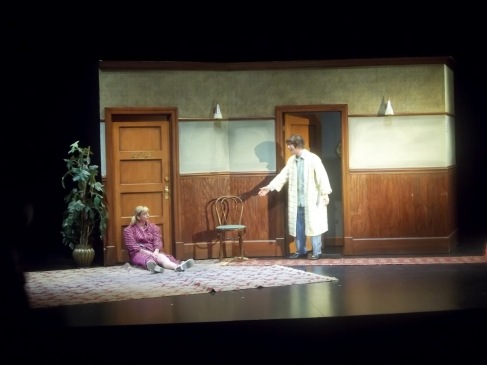For my Junior year at Boston University, I have been apart of an extraordinarily informative, compelling and challenging process called Director’s Project. Essentially, 14 collaborators are trying their hand at directing. Their casting pool is their peers (including myself) and each of us have chosen a 10 minute play to be performed in repertory.
I was cast in an absolutely spectacular piece, The Ballad of 423 and 424 by Nicholas Pappas, about two neighbors who appear to be complete opposites and (SPOILERS) end up falling for each other. It is endearing, heart-felt and smartly written.
However, as with any production the director and the ensemble have run into a few challenges. What is unique about this process, for myself anyways, is that the challenges have nothing to do with the acting of the piece, although I am sure it is far from perfect, but the tech heavy demands that the piece calls for.
The only set pieces listed in the script are two doors. Which is deceptively complex. They are essential to the piece, and have to be built perfectly in order to properly function.
My director and close friend, Haley Jakobson, has done an absolutely fabulous job handling the demands the piece has put on her. However, being the the play are to be performed in repertory the question of transitions has become another big topic of discussion.
Which is where I wish my dialogue with the playwright could begin.
Now, I believe the playwright should have no limits when they are going through the writing process. Whatever their method of writing is is highly personal and unique to each artist. However, I wonder, how conscious should a playwright be about given circumstances when it actually comes to publishing time?
Ballad, as the cast has come to call it, is a piece that is around 15 minutes without cuts. It is highly unlikely that this piece will ever be performed by itself, and so it will almost always be seen in repertory. How aware was Pappas the challenges that it would present? Would the piece have shifted had he thought more of the repertory?
This post is by no means an attack on Pappas or his work. Frankly, I think Ballad is brilliantly written and the ingenuity of the doors as a 3rd character has been fun to play with as well as challenging. However, it is interesting to try and decipher where the logistical lines should be drawn when a writer is writing for the stage, and how much of it is the director and the design team’s job (if there is a design team) to parse through.
